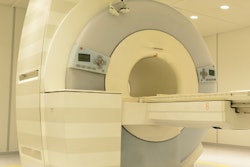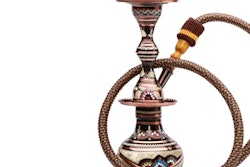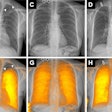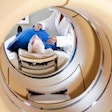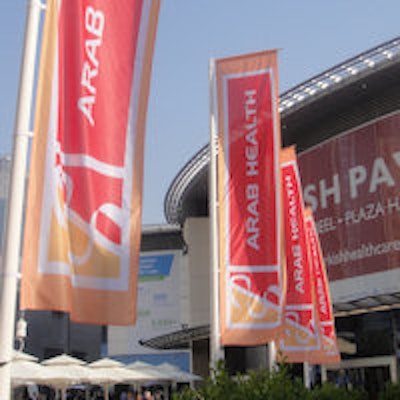
Cancer remains one of the major health problems worldwide with approximately 14 million new cases and 8.2 million cancer-related deaths in 2012. According to the World Health Organization (WHO), the estimated number of new cases is expected to continue to rise by about 70% over the next two decades, mainly in Africa, Asia, and Central and South America. These regions account for 70% of the world's cancer deaths.
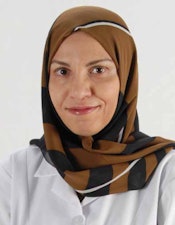 Dr. Samar Al Homoud. All images courtesy of Arab Health Daily Dose.
Dr. Samar Al Homoud. All images courtesy of Arab Health Daily Dose.In the Gulf Cooperation Council (GCC) countries, 119,288 new cases were diagnosed between January 1998 and December 2009. Of these, 58,629 patients (49.1%) were male and 60,659 (50.9%) were female, with most cases diagnosed at advance stages (48.5%). The average age standardization rate during this period was 82.9 per 100,000 in males and 83.7 per 100,000 in females.
These numbers are expected to increase by 2030 due to longer life expectancy, an increase in the population, and better detection and registration, as well as in behavioral changes and lifestyle, which include unhealthy diets, obesity, increased tobacco use, and decreased physical activity.
According to the Gulf Centre for Cancer Registration, the top five cancers were as follow: In males, colorectal cancer was the most common, followed by non-Hodgkin's lymphoma, leukemia, and lung and liver cancers. Breast cancer was the most common in females, followed by thyroid cancer, colorectal cancer, non-Hodgkin's lymphoma, and leukemia.
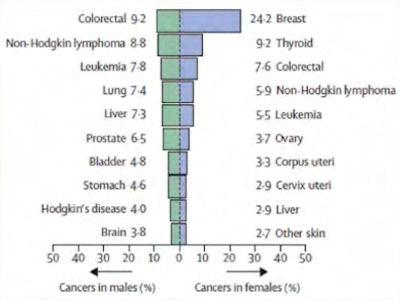 Data for 58,629 male patients and 60,659 female patients.
Data for 58,629 male patients and 60,659 female patients.Globally, cancer poses a major challenge and burden in any health system, societies, and individuals. Some of the key challenges are the lack of standardized cancer management guidelines, delays in diagnosis and treatment, healthcare inequality, lack of proper cancer control programs, inadequate resources, and underfunding of cancer control activities. In spite of these challenges, two-thirds of cancers still can be prevented or cured if detected early and treated adequately.
To achieve such results, several evidence-based strategies need to be implemented. These strategies should be comprehensive, aiming at building strong and effective prevention and cancer control programs through a multisectoral and multidisciplinary platform approach outlying a comprehensive plan for cancer awareness and early detection programs, including screening, early diagnosis, and treatment with both adequate human and financial resources, as well as integration among primary, secondary, and tertiary medical care in all countries.
To accomplish these goals, the Gulf Centre for Cancer Control and Prevention drafted several recommendations:
- Recommendation 1: Alleviate the cancer burden at the Gulf Cooperation Council Health Ministers' institutional level by calling upon the council states to exert their utmost efforts to reduce cancer mortality rates by 25% within 10 years according to the directions of WHO, and update the gulf executive plan for cancer control to cope with the world recent trends.
- Recommendation 2: Alleviate the cancer burden at the level of health sectors by setting a database about the current and future economic burden of cancer on the health system at the regional and country levels, planning national programs for the optimal use of resources, preparing policies that promote healthy lifestyles and deal with other risk factors, and strengthening joint national, regional, and international efforts to minimize the burden of cancer.
- Recommendation 3: Promote scientific research and strengthen collaboration among the relevant stakeholders involved in cancer research with a special focus on nationwide comprehensive cancer surveillance data.
- Recommendation 4: Strengthen national plans, policies, and cancer control programs.
- Recommendation 5: Raise public awareness and health education regarding healthy lifestyles, aiming at minimizing risk factors of such diseases.
- Recommendation 6: Strengthen the role of private-sector and national investments through empowering leaders, policymakers, and legislation makers, as well as the national health strategies in all ministries, and encourage governmental and nongovernmental along with related civil society organizations to collaborate positively and invest with the private sector.
- Recommendation 7: Promote palliative care with a need to improve the access, effectiveness, and quality of palliative care and rehabilitation services provided for patients and family members through integrated team work.
- Recommendation 8: Maximize the role of primary healthcare.
- Recommendation 9: Strengthen the role of civil society and support of community participation. This can be achieved through promoting women and civil society empowerment policies in an integrated form within all health system frameworks and national health promotion strategic plans in various specialties: community, education, religious, and economic.
- Recommendation 10: Effectively empower patients with cancer and their families, and ensure equity in access to health service to all community individuals with high-quality and timely service.
- Recommendation 11: Encourage exchange of information and participation at regional and international meetings for GCC member states.
These recommendations are feasible and achievable, and they will play a major role in lowering the cancer burden in our region, especially with already existing infrastructures.
Successful implementation of these recommendations will require appropriate governmental commitment and collaboration among GCC countries at all levels to overcome all barriers and strengthen cancer prevention and control capacities.
Dr. Samar Al Homoud is a consultant colorectal surgeon at the King Faisal Specialist Hospital and Research Centre in Saudi Arabia and a member of the executive board of the Gulf Center for Cancer Control and Prevention.
Originally published in Arab Health Daily Dose on January 30, 2016.
Copyright © 2017 Arab Health




